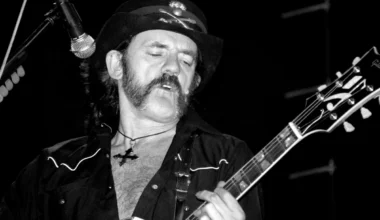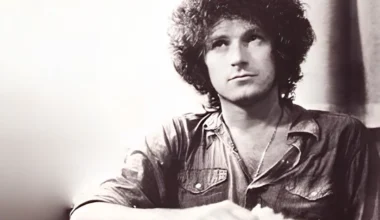Arctic Monkeys have cemented their status as one of the most contentious bands of the twenty-first century, and the brilliance of their music shines through in this range of viewpoints. Their sound has the power to fascinate a wide range of audiences, eliciting both opposing viewpoints and heated debate.
The talent behind Arctic Monkeys is truly exceptional. These include the skilled drummer and backing vocalist Matt Helders, the accomplished lead guitarist Jamie Cook, the rhythmic anchor bass guitarist Nick O’Malley, and, at the forefront, the charismatic frontman, lead lyricist, guitarist, and pianist, Alex Turner.
Coming from humble beginnings, this band displays a fun attitude and honest authenticity that reflects their northern British background. While remnants of their youthful vitality remain today, the core nature of Arctic Monkeys has progressively become obscured by a complex tapestry of varied genres and tastes, demonstrating the band’s growth. Throughout their career, they have incorporated a variety of influences, expanding their sound and exploring diverse genres such as post-punk revival, garage rock, and psychedelic rock.
Arctic Monkeys’ discography defies categorization, constructing a story that represents the band’s evolution and determination to push artistic limits. Their discography, which now includes several albums, demonstrates their ability to negotiate the ever-changing environment of contemporary rock music while making an unforgettable impression on the business.
What sets them apart is their unwavering commitment to the spirit of authentic band cooperation. Although Turner steals the show with his hilarious stage persona, the harmonic interplay of all members evokes delight.
At the same time, few can match Helders‘ remarkable talent, whose drumming prowess reaches new heights, while Cook and O’Malley’s rhythmic contributions merge to form the intricate sound fabric that pervades each record.
When did Arctic Monkeys form?
A new viewpoint on indie music emerged from Sheffield in 2002, brought to life by Arctic Monkeys, founded by Alex Turner, Matt Helders, and then-bassist Andy Nicholson. Despite a wide range of influences, from Scott Walker to Frank Sinatra, a young Turner hesitantly took on the frontman role, eventually establishing himself as the band’s face.
Following countless minor shows and intensive garage practices, the band released their debut album, Whatever People Say I Am, That’s What I’m Not, in 2006. The debut song, ‘I Bet You Look Good On The Dancefloor‘, generated a lot of buzz before the album’s release, making it one of the most anticipated releases of the early 2000s.
It is regarded as one of the best debut and indie albums of all time, with timeless singles like ‘When The Sun Goes Down‘, ‘Mardy Bum‘, ‘Brianstorm‘, ‘A Certain Romance’, and more. While the Arctic Monkeys’ music has evolved significantly since its release, the album continues to elicit nostalgia and love for its unique northern charm, irresistible songs, and cultural relevance.
Where are Arctic Monkeys from?
Arctic Monkeys come from Sheffield, England. Turner and Helders, who were High Green neighbors and close friends, met Nicholson in high school. The band’s initial instrumental lineup gained Turner, nurtured in a musical atmosphere by his music instructor father, as their guitarist.
Sheffield has played an important role in defining the group’s character, and it is frequently mentioned in their early lyrics, which capture the soul of the northern English city. The group began its rehearsals at Yellow Arch Studios in Neepsend, marking their live debut on June 13th, 2003 at The Grapes in the heart of Sheffield city centre. Following a series of gigs in 2003, the band began recording demos at 2fly studios in the city.
The city’s working-class culture and industrial history have also influenced the band’s rough, raw, and real sound. Their songs, particularly on earlier albums, frequently reflected ordinary occurrences in Sheffield, encapsulating the heart of Northern English culture. Turner frequently drew inspiration from his surroundings, crafting scenarios that reflected the city’s working-class culture.








